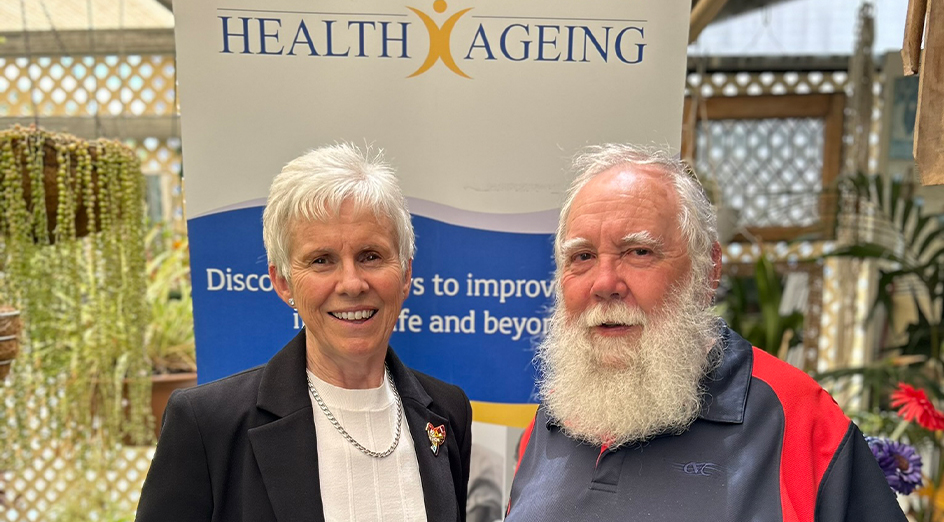A new study led by The University of Western Australia has found although support given by nurses over the phone to caregivers of older adults reduced their stress levels, it did not improve their health-related quality of life.
Professor Anne-Marie Hill, from UWA’s School of Allied Health and Western Australian Centre for Health and Ageing, was lead author of the study published in JAMA Network.
“There are more than 2.65 million Australians who, as carers, provide help and support for their family or friends,” Professor Hill said.
“As life expectancy increases and our population ages it is becoming increasingly important that we provide support for caregivers of older adults.”
 Image: Professor Anne-Marie Hill and carer Howard Lance.
Image: Professor Anne-Marie Hill and carer Howard Lance.
The trial involved three hospitals in two states and 547 caregivers who were aged 18 years or older and provided informal home-based care at least weekly, for a patient aged 70 years or older.
Caregivers received six supportive telephone calls from a nurse over six months after the patient’s discharge from the hospital, with a follow-up for 12 months.
Team member Associate Professor Susan Slatyer, from Murdoch University, said the support had significant benefits for carers.
“They felt more prepared, their self-efficacy improved and their levels of strain and distress decreased,” Associate Professor Slatyer said.
“However, there was no significant improvement in caregivers’ overall health-related quality of life, compared with those that did not receive phone support from nurses.”
The finding suggests that specific interventions that coordinate care, optimise communication, and provide sufficient services for caregivers at the time of discharge are required in addition to pre-admission support.
“Interventions that include psychological, financial, social and home-care support may improve caregivers’ health-related quality of life when patients are discharged,” Professor Hill said.
